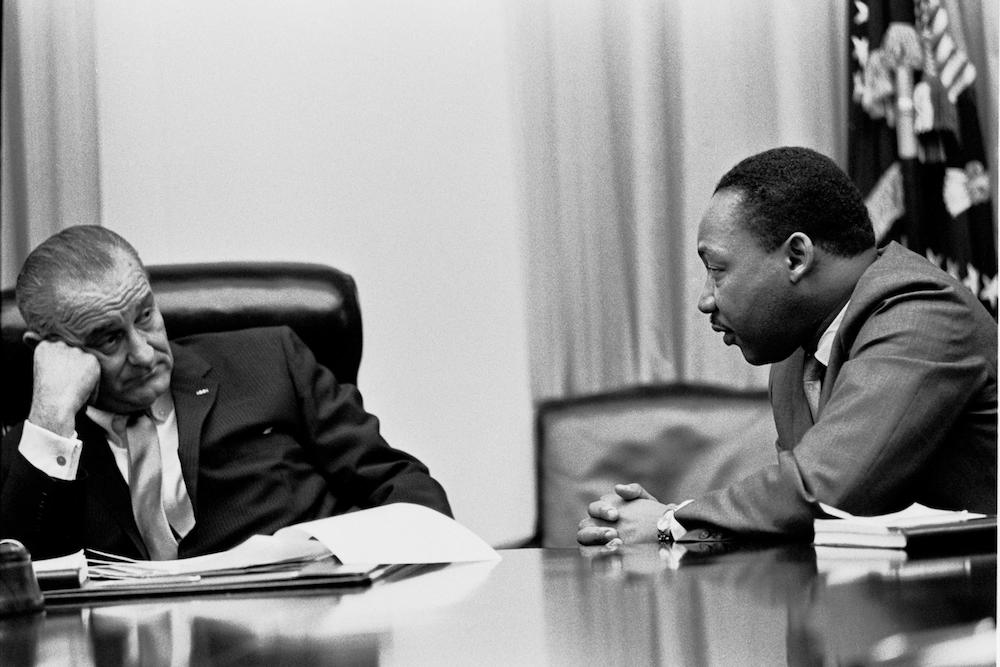President Lyndon Johnson and the Rev. Dr. Martin Luther King, Jr. in 1966. Photo courtesy Wikimedia Commons.
Fifty years ago, the month of April became a turning point in the fight for fair housing for all Americans.
On April 2, 1968, the U.S. Supreme Court heard arguments on a case where a black Missouri man said he was denied a homeownership opportunity because of his race.
Two days later, Martin Luther King, Jr. was assassinated.
Nine days after King’s murder, Congress passed a long-delayed effort to enshrine protections to all Americans against housing discrimination on the basis of race, religion, national origin.
The Fair Housing Act, formally known as the Civil Rights Act of 1968, was also an opportunity to promote a national agenda that funded integration and anti-poverty measures the Rev. King tirelessly marched and advocated for.
Religious leaders from across the country and all denominations soon united in a statement to “affirm that only through massive contributions by the American people can this nation duly honor the life-offering of Martin Luther King, Jr. and responsibly lift up the burden of the poor and oppressed in our land.”
Since the law’s passage, it has been expanded even further to protect tenants and homeowners from unlawful gender, disability, and family status discrimination.
But that inequity, while diminished over the last five decades, has persisted.
According to the National Fair Housing Alliance, there were 28,181 reported complaints of housing discrimination in 2016 filed with the U.S. Department of Housing and Urban Development, or HUD. About one in five of the filed complaints involved race, while about half involved disability-based discrimination.
And that’s just the reported complaints. Many tenants and homebuyers may never know they were the victim of unfair housing practices, much less file a complaint about it. The Alliance report estimates “some 4 million acts of housing discrimination occur per year in the rental market alone.”
In New York City, tenants can also file complaints with the NYC Commission on Human Rights, which goes even further in its protections than the federal government.
Like the federal government, the city protects against discrimination on the grounds of race, religion, national origin, sex, disability, and family status banned. It extends those protections, however, to include age, citizenship status, gender identity, pregnancy, sexual orientation, veteran status, and even source of income (as long as the income is lawfully obtained, including federal assistance like Section 8 vouchers.)
In 2016, the city reported about 2,100 discrimination complaints related to housing, with about 17 percent of them on the basis of income source and 5 percent on race.
In recent years, local and state leaders have taken various real estate companies to task for discriminating against tenants who sought to use housing vouchers. State Attorney General Eric Schneiderman fined a Brooklyn firm of realtors just in 2016 for unlawful discrimination against voucher holders who survived domestic abuse.
“Discrimination against some the most vulnerable residents has no place in New York State,” the attorney general said at the time.
Years before his death, the Rev. King addressed the Chicago Freedom Movement, also known as the Chicago Open Housing Movement, in solidarity with residents demanding equality in housing and employment practices. His words from that day continue to ring true to many across the country:
“Now is the time to make real the promises of democracy.”
Help be a part of the solution! Insist that our communities rely on the full support of fair housing policies and programs — help get the word out about our #KeepHousingFair petition today!
